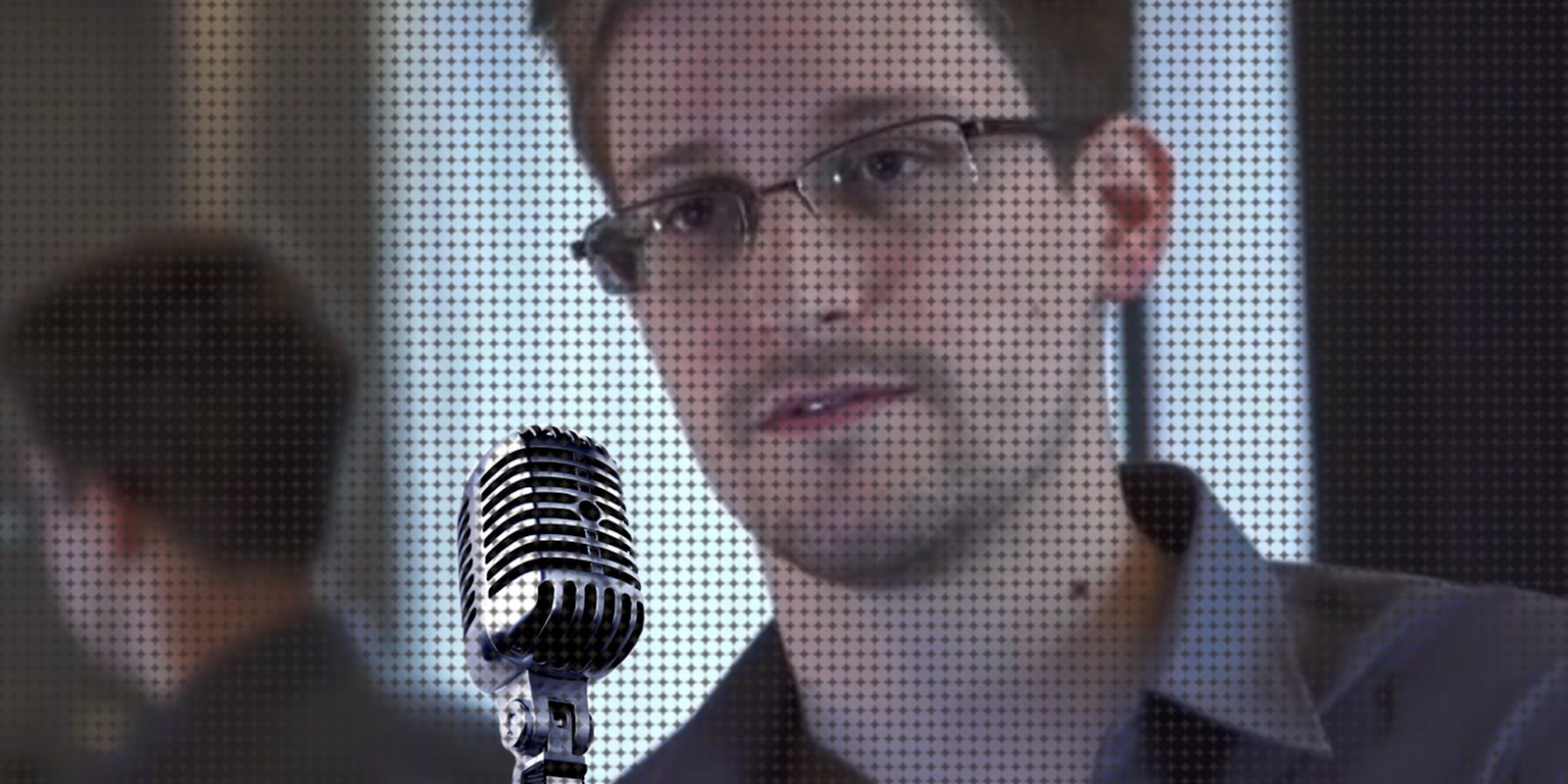Edward Snowden, the whistleblower who leaked documents proving the existence of the government spy program PRISM, wants you to know the government can track your words.
Finally, he let the Internet ask for his.
Snowden gave something resembling a Reddit AMA Monday, hosted on the Guardian, whose Glenn Greenwald released the first and, so far, only full interview with Snowden. The leaker carefully answered users’ questions, ranging from seeming discrepancies in his story to why he doesn’t have a pet phoenix yet.
Six takeaways:
1) Stop harping on how much Snowden made.
Snowden initially told the Guardian he’d been making around $200,000 working for Booz Allen. But when the consulting firm released its stark announcement about Snowden, it stated plainly that he’d been making $122,000 when he left. Some have claimed the discrepancy shows Snowden’s less than trustworthy, but that’s making a mountain out of a molehill. He’s had a number of related jobs in his decade-long tech career, and his salary has varied.
The statement I made about earnings was that $200,000 was my “career high” salary. I had to take pay cuts in the course of pursuing specific work. Booz was not the most I’ve been paid.
2) Before calling him a traitor, look at the context.
[I]t’s important to bear in mind I’m being called a traitor by men like former Vice President Dick Cheney. This is a man who gave us the warrantless wiretapping scheme as a kind of atrocity warm-up on the way to deceitfully engineering a conflict that has killed over 4,400 and maimed nearly 32,000 Americans, as well as leaving over 100,000 Iraqis dead. Being called a traitor by Dick Cheney is the highest honor you can give an American, and the more panicked talk we hear from people like him, [Sen. Diane] Feinstein, and [Rep. Peter] King, the better off we all are. If they had taught a class on how to be the kind of citizen Dick Cheney worries about, I would have finished high school.
3) He once believed in Obama, but has lost that faith.
President Obama had campaigned on “creating an unprecedented level of openness in Government.” In 2008, he angered supporters by supporting the Foreign Intelligence Surveillance Act (FISA), which allows agencies like the NSA to issue classified court rulings to obtain people’s communications. Without referring to PRISM by name, Obama officials have stated that programs like it are legal under section 702 of FISA. When asked why he didn’t leak information about NSA spying in 2008 or earlier, Snowden replied:
Obama’s campaign promises and election gave me faith that he would lead us toward fixing the problems he outlined in his quest for votes. Many Americans felt similarly. Unfortunately, shortly after assuming power, he closed the door on investigating systemic violations of law, deepened and expanded several abusive programs, and refused to spend the political capital to end the kind of human rights violations like we see in Guantanamo, where men still sit without charge.
4) There’s a distinction between what the NSA isn’t legally allowed to do and what it physically can do.
Snowden says that when the NSA says it can’t track Americans through PRISM—which would be illegal, since FISA is supposed to apply only to foreigners—that’s a policy restriction, but not a technical one. That means Americans can still get swept up in it.
they can enter and get results for anything they want. Phone number, email, user id, cell phone handset id (IMEI), and so on—it’s all the same. The restrictions against this are policy based, not technically based, and can change at any time. Additionally, audits are cursory, incomplete, and easily fooled by fake justifications. […]
NSA likes to use “domestic” as a weasel word here for a number of reasons. The reality is that due to the FISA Amendments Act and its section 702 authorities, Americans’ communications are collected and viewed on a daily basis on the certification of an analyst rather than a warrant. They excuse this as “incidental” collection, but at the end of the day, someone at NSA still has the content of your communications.
5) If they wanted, the major Internet companies could become whistleblowers like Snowden.
Companies like Facebook and Microsoft are legally sound when they carefully craft denials of being willful participants in PRISM. They do know more about the NSA than they say in press releases, though—they just can’t be specific, because that information is classified.
They are legally compelled to comply and maintain their silence in regard to specifics of the program, but that does not comply them from ethical obligation. If for example Facebook, Google, Microsoft, and Apple refused to provide this cooperation with the Intelligence Community, what do you think the government would do? Shut them down?
6) If Snowden were a Chinese spy, he could be petting a phoenix right now.
This is a predictable smear that I anticipated before going public, as the US media has a knee-jerk “RED CHINA!” reaction to anything involving HK or the PRC, and is intended to distract from the issue of US government misconduct. Ask yourself: if I were a Chinese spy, why wouldn’t I have flown directly into Beijing? I could be living in a palace petting a phoenix by now.


